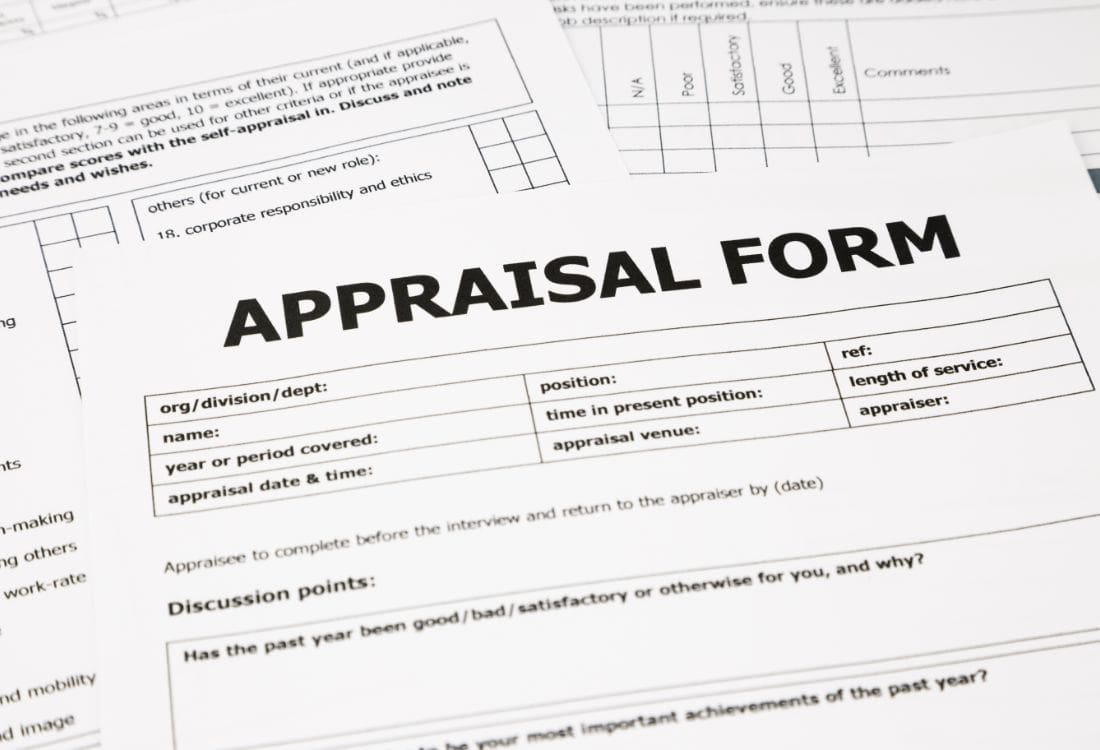
Why annual performance appraisals are a waste of time
We believe there is little doubt that effective performance management is a fundamental component of success. Yet, performance management systems are only as impactful as the people who hold the performance reviews. These systems come in many forms and range in complexity, but most organisations continue to hold annual appraisals with their staff. Do we see positive changes in performance or behaviour from these appraisals and, if not, is it time to do away with them?
When it comes to annual appraisals, people seem to fall into one of two categories – those who dread them and those who dismiss them as a waste of time. We certainly don’t tend to hear of people looking forward to them! This is because they rarely serve any greater purpose than to hone people’s ability to fill in paperwork.
On both sides of the table, questions go unanswered, issues remain unresolved and the appraisal doesn’t achieve a change in behaviour or performance. Managers don’t have the skills or confidence to effectively hold high stakes, emotionally challenging conversations and employees don’t know how to overcome their own career-limiting habits; even if they want to. At best, some people receive constructive feedback on their performance and still leave without a clear strategy for change, while others leave with nothing more than a score that is linked to a bonus scheme.
Although we have heard many tales of bad performance reviews, two recent conversations sprung to our mind. Firstly, we spoke with someone (let’s call him James) who works for a global financial institution. At the time, James was relatively new to his role as a team leader and still finding his feet. In preparation for his appraisal, he spent hours filling out the necessary forms, digging deep in his self-evaluation of key competencies and development requirements. The appraisal itself was a 10-minute interview with James’ manager and at the end he walked out graded a ‘level 2’. We asked him what a level 2 meant. “It’s the same score everyone gets. You’d have to be really bad at your job to get a 1 and no one gets a 3 because then you’d get a bigger bonus.” We were left wondering how he, his manager or the organisation really benefitted from this process?
The second conversation we had was with someone else (let’s call her Sarah) who works in the public sector. Unfortunately, this conversation was equally as perplexing and disheartening. At first it sounded far more positive, Sarah’s appraisal lasted an hour; with healthy discussions on how she was performing and she even received constructive feedback on development. Her manager acknowledged that she had considerably overachieved against expectations and commended her on the value she was bringing to the team. Due to the honest and positive discussion they’d been having, Sarah decided it was the right time to raise a concern she had about a colleague who was closing casework without completing all of the required assessments. This is when things started to go downhill. Her manager was also aware of the problem, but said there was nothing that could be done as “that’s just the way that person operates” and that Sarah should let it go. When the appraisal scores came back, Sarah was informed she had only ‘achieved’ in her role. When Sarah challenged this, she was told that ‘over-achieved’ was only available to senior managers and she wouldn’t be considered. So did this appraisal or management style create positive behaviour change? Well, it made Sarah feel positive that she should look for another job.
These are just two examples of demotivating and ineffective performance appraisals. I’m sure everyone knows someone (if it’s not themselves) who has been promised a salary review, more one-to-ones, more responsibility or training, but it never comes to fruition. Why? Because there was no agreed plan of action, stating who will do what by when.
On the flip side, many of us know at least one person who is under-performing or behaving badly to the detriment of their team, and their organisation, yet they’re not held accountable by their managers and they become seemingly untouchable.
Some organisations, such as Deloitte, have publicly announced a move away from the annual appraisal and are focusing on ‘real-time feedback’. An internal survey found that employees saw the appraisal as a tick-box exercise. Is it time everyone else made the same decision? Maybe.
However, it is the people involved in performance discussions, not the appraisal or performance management system, which have the ability to drive change and create a positive experience for those involved. It shouldn’t just be a tick-box exercise that forms the basis of a forced ranking system, provides staff with a score attached to the bonus scheme or even sets out unattainable, and therefore demotivating, criteria of achievement.
It doesn't matter whether these meaningful, and sometimes difficult, performance discussions take place weekly, monthly or annually, we need to provide managers with the skills and confidence to hold these conversations effectively. Only then can they hold others accountable, diagnose and describe the gaps in performance, create action plans and follow through on them. That’s how we stop annual appraisals from being a waste of time and then, who knows, maybe staff might actually look forward to them a little more!
To learn how we can help you create positive behaviour change in the workplace and equip your managers with the skills they need to help themselves and others to reach their full potential, please contact us.
Image Source: Canva



